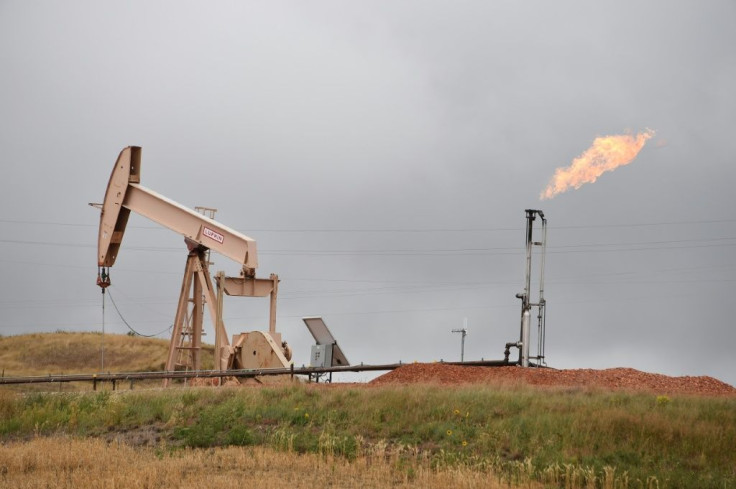Oil Prices Plunge As Russia-Saudi Arabia Clash In Price War, Trump Says It's Good For Consumers

KEY POINTS
- Russia refused to go along with an OPEC production cut, triggering a stand-off with Saudi Arabia
- IEA predicted a drop in demand for 2020, the first in a decade
- Russia is seeking to pressue the U.S. shale oil industry, which needs $40 a barrel to break even
Update: 4:45 p.m. EDT
Brent crude futures recovered late in the day, moving 0.2% higher to $34.43 a barrel, but crude futures plunged 25% to $30.94.
"The oil price cuts are targeted against the growing US energy production sector as it is an increasingly greater threat to the middle east and Russian oil sales. It is a big gamble from producers that are increasingly facing existential threats from US production," Steven Skancke, chief economic adviser at Keel Point, told IBTimes.
Original story:
Oil prices plunged more than 20% in morning trading Monday as the production feud between Russia and Saudi Arabia sent prices toward two-decade lows.
Russia refused to go along with OPEC efforts to reduce production in the wake of the coronavirus, prompting Riyadh to slash April export prices by $6 to $8, which produced a 30% plunge in prices, the biggest drop since the 1991 Gulf War.
In midmorning trading, crude oil futures hovered around $33 a barrel while Brent crude was around $36. Prices haven’t been this low since February 2002. Overnight, U.S. oil prices were as low as $27. The lowest oil prices have gone in recent memory was $17 a barrel in November 1998, the same level they were at in 1946.
The plunge roiled markets with the Dow Jones Industrial Average opening 1,800 points lower, triggering a trading halt on the New York Stock Exchange.
“The situation we are witnessing today seems to have no equal in oil market history,” Fatih Birol, executive director of the International Energy Agency, told Bloomberg. “A combination of a massive supply overhang and a significant demand shock at the same time.”
The IEA said in its March report it expects global oil demand to fall this year for the first time in a decade because of a deep coronavirus-prompted retraction in China, which “accounted for more than 80% of global oil demand growth in 2019.” It also cited major disruptions in travel.
Prices of energy stocks also plunged. Royal Dutch Shell PLC (RDS-B) was off more than 12% while ExxonMobil Corp. (XOM) was off nearly 8%, BP PLC (BP) was off nearly 18%, Chevron (CVX) was off nearly 11%, Total S.A. (TOT) was off 13% and ConocoPhillips (COP) was off nearly 22%.
The Saudi move was aimed squarely at Russia.
"The signal is Saudi Arabia is looking to open the spigots and fight for market share," said Matt Smith, director of commodity research at ClipperData. "Saudi is rolling up its sleeves for a price war."
"The war against the coronavirus is turning into a war for oil export markets," said analyst Tamas Varga at oil broker PVM Associates.
Russia balked at following OPEC’s proposal, apparently to pressure U.S. shale oil producers, who need at least $40 a barrel to break even. Analysts at energy consulting firm FGE said Sunday the Russian effort may be doomed “unless prices remain low for a long time.”
“If a true price war ensues, there will be plenty of pain in the oil markets,” Badr Jafar, president of Crescent Petroleum, a United Arab Emirates oil company, told the New York Times. “Many will be bracing for the economic and geopolitical shocks of a low-price environment.”
Depressed oil prices would have a major impact on Venezuela and Iran, whose economies are oil-based and already are being pressured by U.S. sanctions.
President Trump again discounted the impact of coronavirus, praising his decision to block travel and blaming the media for sending markets into a spiral.
https://twitter.com/realDonaldTrump/status/1237024551294382081
© Copyright IBTimes 2025. All rights reserved.






















